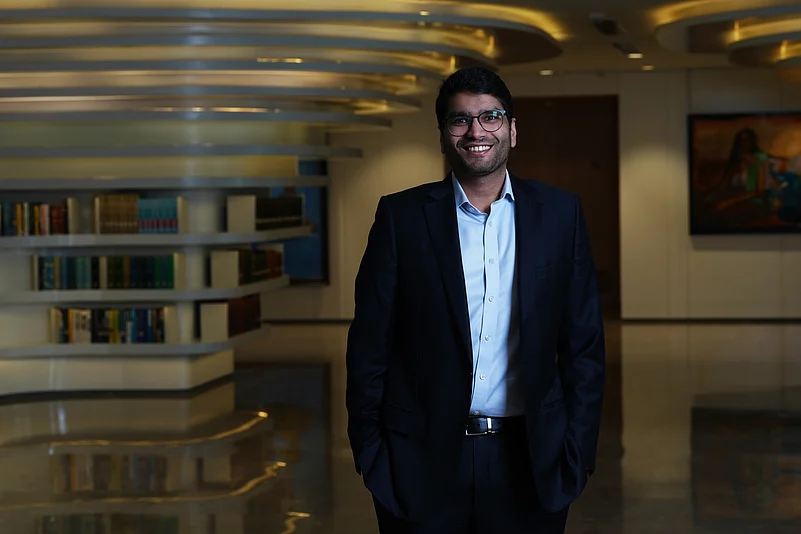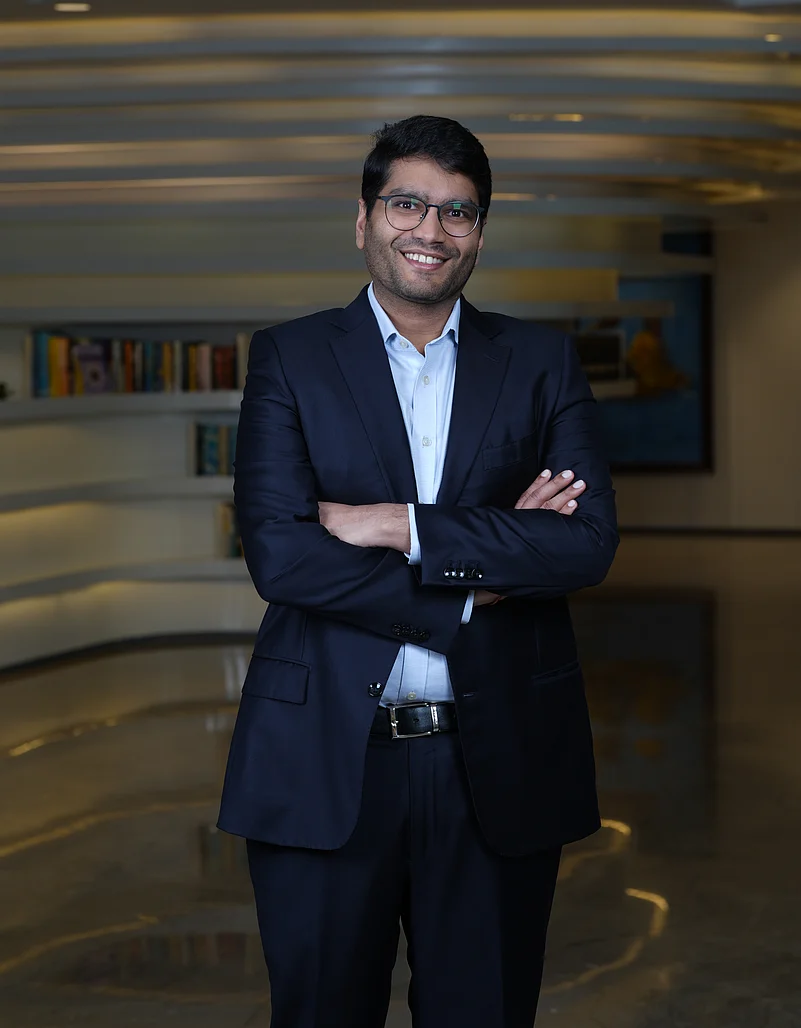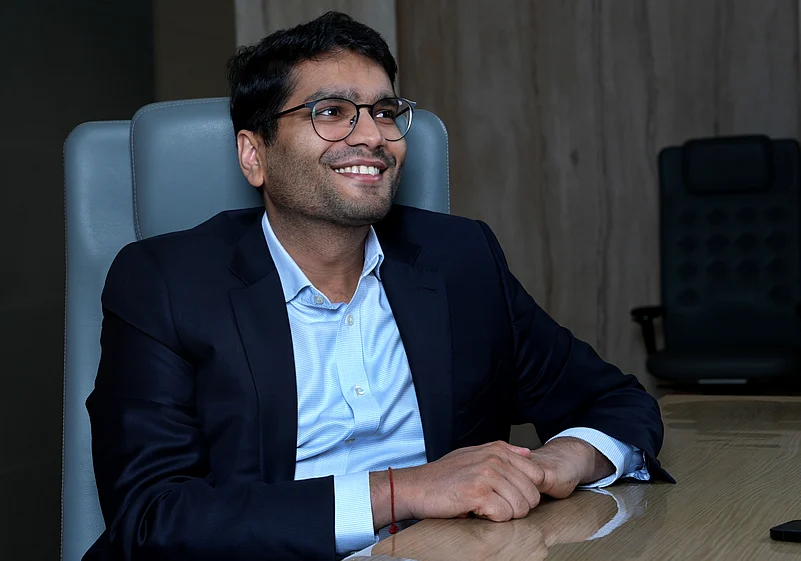Did you always know that you would join the family business, or were you free to explore other paths?
I always knew we were part of a business family, but for much of my childhood, I didn’t understand the background, size or scale of the family and the family business. In my head, it was normal.
We were never explicitly told that we had to join the business, but I think we grew up knowing that this is where we would get a lot of opportunities. Therefore, when I decided to go abroad for college, I was certain I would come back and join the family business, just not sure when. It wasn’t something that was ever told to us, that you need to work in the family business, but maybe it was just assumed by both sides that that would be the case.
When you went abroad to study, did you explore other career options?
I did a lot of summer internships during college. I interned in India, including stints with Nestle [an FMCG major] and KPMG [a consultancy]. In the fourth year of college, I started thinking about whether I should work for two or three years before returning.
I always wanted to come back to the family business, but a few things influenced my decision. One was speaking to peers working in the US…the kind of work they were doing seemed to be stuff that I thought was fairly superficial in their first jobs. Real work began only in the third or fourth year. I didn’t want to wait that long.
India, meanwhile, was where all the action was. The new government had just taken over, transitions were happening and a lot of policy changes were being implemented, which was exciting. So, I thought India is at a pivotal point and why would you not want to be part of that journey?
At that point, our group was undergoing a massive year-long exercise with [professional-services firm] McKinsey, across verticals. So I wanted to come back and work with Mckinsey to get that one-year consulting experience. But at a deeper level, I felt that the family business would allow me an opportunity to take on leadership roles at a young age, which I may not have gotten elsewhere.

What’s your strategy when it comes to building on legacy businesses while also entering new ones?
Over the past 10 years, we’ve entered several new sectors like IT-enabled services through the acquisition of Firstsource [Solutions], and entry into FMCG, which was a greenfield venture for us. We’ve also moved into sports and media. Diversification is something which is innate in our group DNA.
Historically, our group has grown through acquisitions. What has changed is the role of data. Today, decisions are far more analytical. There is a lot more analysis around where to allocate capital across projects, businesses or entirely new sectors by evaluating expected ROCE [return on capital employed] and growth opportunities carefully.
As a next-gen leader, how do you navigate generational shifts?
What’s changed over the years is the speed of innovation. We have realised that to stay abreast of the changes in the world, we need to be at par, if not better. How do you do that? For us, for every aspect of RPSG and in our businesses, we realised that we have to change our way of working to suit the current times.
You really need to understand what it is that is going to work in the future for each of the business lines, how you become ready for them and how you become, if not first movers, then at least early movers.
Within the organisation, whether someone has been here for decades or just joined, what we value is agility and adaptability, not age. They need to be agile enough to be able to change themselves. It’s not about tenure; it’s about the ability to adapt, evolve and lead change across roles and functions.
As India gains a stronger global presence, how do you see your organisation evolving?
From a globalisation perspective, we’re clear that we want to be a leading business house not just in India but also create things for the world. For instance, Firstsource serves clients in the UK, Europe and the US. PCBL Chemical has clients in the US and Europe. The idea is how do we globalise our businesses and not just through our clientele, but also by building manufacturing footprints there.

What are the key challenges that next-gen business leaders face today?
The key is to identify and seize opportunities within that uncertainty [of geopolitical changes]. First, it’s about understanding what the opportunity is and how to act on it. Second, with the pace at which technology is transforming business, you have to be agile. It’s being able to foresee trends that are emerging which may disrupt you or which may present you with a new set of opportunities.
The key is to seize opportunities within that uncertainty [of geopolitical changes]...it's about understanding what the opportunity is and how to act on it
How are you integrating AI into your operations?
Each company in our group is evaluating how AI can be used in its business. But we look at it across the value chain—right from replacing certain processes to how to use AI to become more efficient. For example, for our consumer businesses, how can AI help with demand forecasting. We are now looking at AI in energy business as well.
At the group level, we’ve set up an AI cell to explore how AI can make us better across the board.
Start-ups are disrupting businesses, especially in FMCG. Do you see yourself competing or learning from them?
In FMCG, we’re a start-up ourselves. Same with renewable energy. We’re doing what start-ups do, including raising funds. Many of them have managed to grow rapidly and frugally. That’s something we’re consciously learning from them.

What do you think your family did right when it came to succession planning?
Thankfully, I don’t have to worry about this right now. My kids are still very young, one is four and the other is six months old. So I have many years to go before I think about how I want to deal with it.
But I did see my grandfather handle succession thoughtfully. He split the business between his two sons while he was still alive. It was not something that happened post facto. That was great and it ensured that relationships between all of us stayed very good.
There was no animosity that crept in which you often read about in other scenarios. His decision helped prevent that, and it’s something I think others could learn from: take the necessary steps while you're still there.
Where do you see the next phase of growth coming from?
I see four clear areas. One is energy, especially renewable energy. Second is IT and IT-enabled services, particularly AI. Third is the chemicals sector. And fourth is the consumer space which is essentially looking at the FMCG business.
How do you see retail and consumer-facing businesses evolving, especially with the differences between B2B and B2C models?
Around eight years ago, we decided to shift towards becoming a more consumer-facing conglomerate. That’s why we entered media, sports, FMCG and similar areas. Even our legacy businesses are moving toward B2C or at least B2B2C models.
B2C businesses, I think, are poised for massive growth in India. Seventy per cent of the population is under 35, and 40% of that 70% is between 25 and 35 years, which is where the spending power lies.
Do you think your age helps you connect better with your target consumer base?
Yes, absolutely. We’re targeting a demographic that I’m part of; that is an advantage. Secondly, we also have less experience than previous generations or even people in our organisation who have worked for longer, you don't have baggage or too many fixed ways of working. With fewer years of experience, you’re often more open to trying new things and that allows for agility, experimentation and thinking out of the box.
What kind of legacy do you want to build?
First, I want to significantly grow the legacy I’ve inherited. Second, I hope to create something that has a positive impact on society, not just in India, but globally. Whether it’s through our products, services or values, the idea is to contribute meaningfully. Ultimately, I want to build a legacy of excellence, in execution, relationships and in every other aspect.













